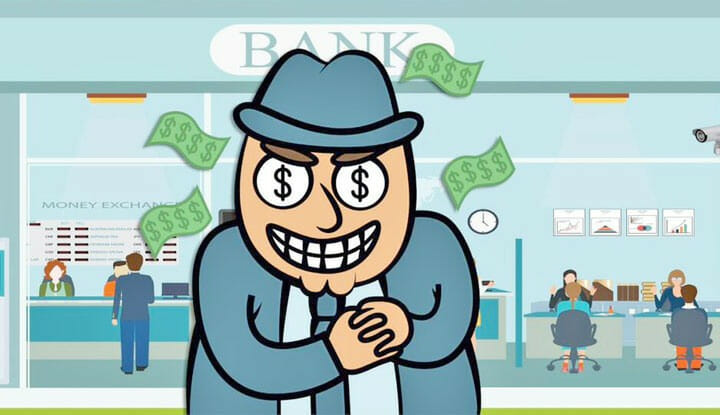Many individuals are against cryptocurrencies, stating it is the biggest Ponzi Scheme ever devised, that only criminals use it for money laundering, and that it is the biggest Ponzi Scheme ever devised, and are suddenly very concerned about energy use.
One of the longest-running controversies in the cryptocurrency field is whether Bitcoin is a Ponzi scheme. Jorge Stolfi, a computer science professor, is one of the most well-known proponents of the “Bitcoin is a Ponzi scheme” position, having published an article outlining his reasons for believing so.

A Ponzi scheme, according to Stolfi, is a sort of investment fraud having the following five characteristics:
1. People invest in it because they anticipate high profits, and
2. Those profits are given to those who choose to cash out, sustaining that anticipation. However,
3. Those payoffs have no external source of revenue. Instead,
4. The payouts are wholly funded by new investment capital, whereas
5. A substantial amount of the money is taken away by the operators.
There is a much more refined way to look at the situation, particularly when you take a moment and adopt a different picture. Labelling Bitcoin a Ponzi Scheme is Shallow Reasoning. Bitcoin is best understood as a one-of-a-kind asset in history, making it impossible to connect it to other securities.
The framers of a Ponzi Scheme entice investors that they would profit. Such insurance is not provided by Bitcoin. There is no centralised entity; instead, individuals are constructing an economy.
A zero-sum game is a ponzi scheme. Then it’s only feasible for early investors to profit at the expense of late adopters. Bitcoin has the potential to be a win-win situation. The gain in value benefits early adopters. The utility of a stable, rapid, economical, and widely accepted peer-to-peer money benefits late adopters, as well as society as a whole.
The fact that early adopters reap greater benefits does not automatically imply that something is a Ponzi scheme. This feature can be found in all solid investments in profitable businesses.
On Twitter, @punk6529 started a thread urging more people to support a more decentralised banking system. He claims that if you don’t have the right to transact, you’re effectively giving up your constitutional rights.
The user proceeds to explain how people have fundamental rights to freedom of expression, assembly, and religion; they are innocent until proven guilty; and the state cannot punish people without due process, which generally means that the state must prove you committed some specific law in a court of law.
All of this seems so straightforward, but how does it relate to money…financing, and, ultimately, our ability to transact and be free of financial censorship?
@punk6529 has an answer to this too, he explains :
Freedom of speech may necessitate activities such as creating a website, a pamphlet, an advertisement, paying a graphic designer, or travelling to a different location, all of which “cost money,” and similarly, freedom of assembly may necessitate activities such as taking a train to Washington DC or booking a hotel room, all of which again “cost money.”
As a result, it’s safe to assume that exercising rights costs money.
The risk of financial censorship has historically been substantially lower since, for almost the entirety of human history until around 2001, it was relatively uncontroversial that people may use decentralised non-custodial means of trade.
Humans have utilised commodity money (from cowry shells to gold) for hundreds of thousands of years, and we have also had many sorts of cash-based mechanisms in the previous few hundred years.

These are all “non-custodial,” “decentralised,” and “KYC-free.”
If subsequent history has taught us something, it is that financial middlemen cannot be trusted to support dissident or unpopular viewpoints.
It was seen more than a decade ago with PayPal’s and other large financial firms’ blockage of Wikileaks in response to extra-legal pressure from US lawmakers.
@punk6529 affirms that he, too, is opposed to money laundering, terrorism, and tax avoidance. The issue, though, is that both short- and “long-term goal creep” exists.
Banks and payment processors in the United States (and the EU) have been forced to close accounts for gun shops, adult companies, crypto firms, and other completely legitimate businesses.
This is considered undemocratic by the user. If a country wants to declare pornography, weapons, or cryptocurrency illegal, it can do it through legislation.
Citizens can then re-elect or de-elect the candidates who voted in favour of it, as well as challenge it in court.
Even in today’s system, being unbanked and reliant on cash effectively excludes you from the modern economy.

Traditional payment rails are required for paying bills, receiving a paycheck, paying vendors, investing in a 401K, and even purchasing cryptocurrency. Many central banks have set objectives for their CBDCs, including:
-Remove cash from the equation
-Allow worldwide transaction filtering
-Use extremely low interest rates
This type of technology would be the most powerful centralised control system the world has ever seen.
What will happen is that some aspirant tyrant would limit their opponents’ spending during election season, preventing them from even purchasing a tomato, let alone running a campaign.
It’s a foregone conclusion with enormous power and no due process. People who are looking for power often run for office. We’ve been the frog in this process, and we’ve been gently boiled.
Every year, the reporting requirements become more stringent, the fines become more severe, and the restrictions on cash withdrawals become more stringent. It’s important to remember that “non custodial” was the primary type of transaction for the majority of human history.
It is a relatively new idea that this is a bad thing. It’s practically a state-sanctioned power grab. One of the reasons why central banks, in particular, loathe crypto is because of this.
Here they are, approaching the ‘end of cash,’ and now a new type of digital cash appears, which they believe must be reeled in as well in order for the rest to work.
For many people, Bitcoin is their first chance to hold money in a safe and secure way that is not subject to outside influence. The ability of established regulatory and legal institutions to keep up with bitcoin’s rapid growth into the main digital asset of choice has been impeded by accelerated digitalization of assets as stores of value. Because Bitcoin’s decentralised ledger exists beyond the control of the existing international financial system, people in charge of the legacy banking system have reason to be concerned. Computer code is used to verify peer-to-peer trustless relationships, which eliminate the requirement for a bank. Bitcoin is a digital asset that is more agile and better adapted to address the requirements of unbanked individuals than the traditional financial institutions that have failed them.
Bitcoins are essentially a commodity that is issued at a set rate. It is not a ponzi scheme because there is no guarantee that you would be able to redeem your bitcoins for any amount of money, and there are no dividends paid to individuals who own bitcoins. Because bitcoins are exchanged, the exchange rate might rise or fall, and people will purchase or sell bitcoins to speculate on the price.
The free marketplaces where bitcoins are traded are currently undergoing price discovery for the exchange of these currencies. Over the last two years, the exchange rate has moved dramatically.









